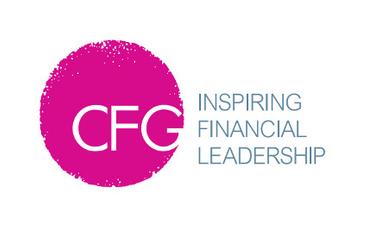The Charity Finance Group has warned that “auditors are increasingly being asked to police the charity sector”, in response to proposed changes to reporting requirements by UK charity regulators.
CFG raised a number of other concerns about proposed changes to auditor reporting duties, including the impact the changes could have on the relationship between professional firms and charities, in its response to additional reporting requirements set out in a joint consultation by the Charity Commission, CCNI and OSCR in May.
Its response to the consultation said the proposals could lead to increased costs for both auditors and charities. It also cautioned against increased “policing” by auditors - ultimately leading to less support for the charities that use them.
“There is a significant risk that increasing reporting requirements for auditors and independent examiners may actually counter the Charity Commission’s efforts to build a more financially resilient sector,” CFG said.
“Our discussions with auditors and independent examiners have highlighted the risk that advisors may take a step back from working with their clients for fear of the regulatory consequences of not reporting on those discussions. Unless this concern is addressed along the lines that we have recommended, the Charity Commission may reduce the number of avenues through which charities, particularly small charities, can receive support.”
According to CFG, trustees and charities who currently rely heavily on auditors for support and recommendations on good practice during “open conversations”, could in the future be prevented from doing so, for fear of being reported to the regulator.
“This would end up undermining the financial resilience of the sector and have significant negative long term consequences, which we do not believe is the Charity Commission’s intention,” it said.
Capacity issues
CFG said the Charity Commission should “step up its support and advisory work with charities, and sector bodies, rather than increasing reporting requirements”.
But it also called into question the Charity Commission’s capacity to review modified reports from auditors and independent examiners.
“If there was a lack of capacity among the Charity Commission to act on these reports then it is a waste of both charities and auditors time,” the CFG response states. “Even if there is a capacity to act on these reports, we believe that it would seriously undermine the relationship between auditors and charities. Moreover, a disproportionate burden would be placed on auditors and independent examiners to correspond between the Charity Commission and trustees.
“This would increase costs for auditors, which would be transferred to their clients and the Charity Commission has not outlined what improvements there would be for the sector to justify the significant increase in cost. We believe that once an auditor has provided a modified report and has notified the Charity Commission that any further responsibility to monitor the charity should be done by the Commission… It is not the responsibility of auditors to regulate charities.”
Banking services
CFG also raised concerns about proposed changes relating to the reporting of suspicion of money laundering or serious organised crime. The regulators propose including a section on bank accounts and charities’ ability to allow others use their accounts to move funds.
But CFG said such a reporting requirement for auditors could be illegal and put the auditor at risk of “tipping off”.
“It is unclear whether reporting to the Charity Commission would be considered a tip off. This is particularly pertinent for independent examiners where this level of reporting responsibility might be a burden too far. Current guidance for independent examiners does not include guidance on reporting on suspected money laundering activity,” CFG said.
Furthermore, CFG said the proposal could “deter charities from sharing financial services which is becoming increasingly important as a way to reduce costs, improve effectiveness and pool risk”.
“We believe that the expanded definition is unhelpful and could inadvertently affect charities access to banking services. We recommend greater clarification on the amendments and that the proposal for reporting on using joint bank accounts is removed.”
SORP clarification
CFG called into question proposals to align the guidance with terminology used in the SORP – including changing the word “significant” to “material” in relation to fraud and failure of internal controls.
“[These] revisions do not add significant clarification for auditors and should be clarified by changing the terminology in the SORP first,” said CFG.
The consultation in May called for responses to a series of changes to its list of “significant matters” that auditors and independent examiners must report to the regulator.
The consultation closed on Sunday and the regulators are expected to publish new guidance by the end of the year.









